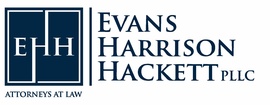EMPLOYMENT LAW ALERT
EEOC: DENIAL OF RELIGIOUS ACCOMMODATION REQUEST UNLAWFUL
On relatively rare occasions, the U.S. Equal Employment Opportunity Commission (EEOC) will itself file a lawsuit against an employer on behalf of an aggrieved employee. By way of example, in FY 2021, 61,331 charges of discrimination were filed with the EEOC; during that same period of time, the EEOC filed 116 lawsuits. Generally speaking, therefore, when the EEOC files a lawsuit, it is on one of those relatively rare occasions when the agency feels confident that a strong statement needs to be made with respect to an employer’s activities.
On December 16, 2022, the EEOC filed a lawsuit in the U.S. District Court for the Northern District of Georgia against Children’s Healthcare of Atlanta addressing religious discrimination against a maintenance employee at that facility.
According to the complaint filed by the EEOC, the employee requested a religious-based exemption from the hospital’s mandatory flue vaccination requirement. In 2017 and 2018, the hospital had granted the employee’s request for a similar exemption, but in 2019 the hospital reversed course, denied the employee’s request, and terminated his employment.
“It would not have been an undue burden for CHOA to continue accommodating its employee as it had in 2017 and 2018,” remarked Marcus Keegan, the Atlanta District Office Regional Attorney. “Instead, CHOA inexplicably changed its stance on flu vaccination exemptions for this maintenance employee in 2019 and failed to consider any meaningful, reasonable accommodations for sincerely held religious beliefs.”
A couple of thoughts based upon this newly-filed case:
- In the employment law arena, precedent is always critically important. When talking about workplace accommodations (whether religious or disability-based), the fact that employer has previously been able to provide a requested accommodation goes a long way toward showing that the employer could have continued to provide that same accommodation. In defending against the present case, this hospital will find it necessary to explain why it changed its position on flu vaccinations in 2019. If you find yourself in a position where you wish to discontinue an accommodation that has previously been in place, you should be prepared to explain why this standard needs to change. For example, if allowing an accommodation proved unworkable and directly impacted business operations, for example, you might have a valid, objective reason for the change. Absent such an explanation, the decision will almost certainly be viewed as arbitrary and, therefore, discriminatory.
- The EEOC did stress that this maintenance employee had “extremely limited interaction with the public or staff.” There is precedent for concluding that hospital employees who have interaction with very ill patients may lawfully be denied a religious-based exemption from a vaccination requirement. When examining whether a particular employee’s request for exemption be allowed or denied, therefore, it may be wise to consider whether others come into contact with the employee during the workday. The degree to which other individuals (coworkers, customers, patients, venders, etc.) interact with a particular individual may prove to be an important factor in determining whether a religious exemption is appropriate.
If you have questions about this Employment Law Alert or wish to discuss the impact of this decision upon your business, please do not hesitate to contact Maury Nicely at Evans Harrison Hackett PLLC, 423/648-7851 or mnicely@ehhlaw.com.


